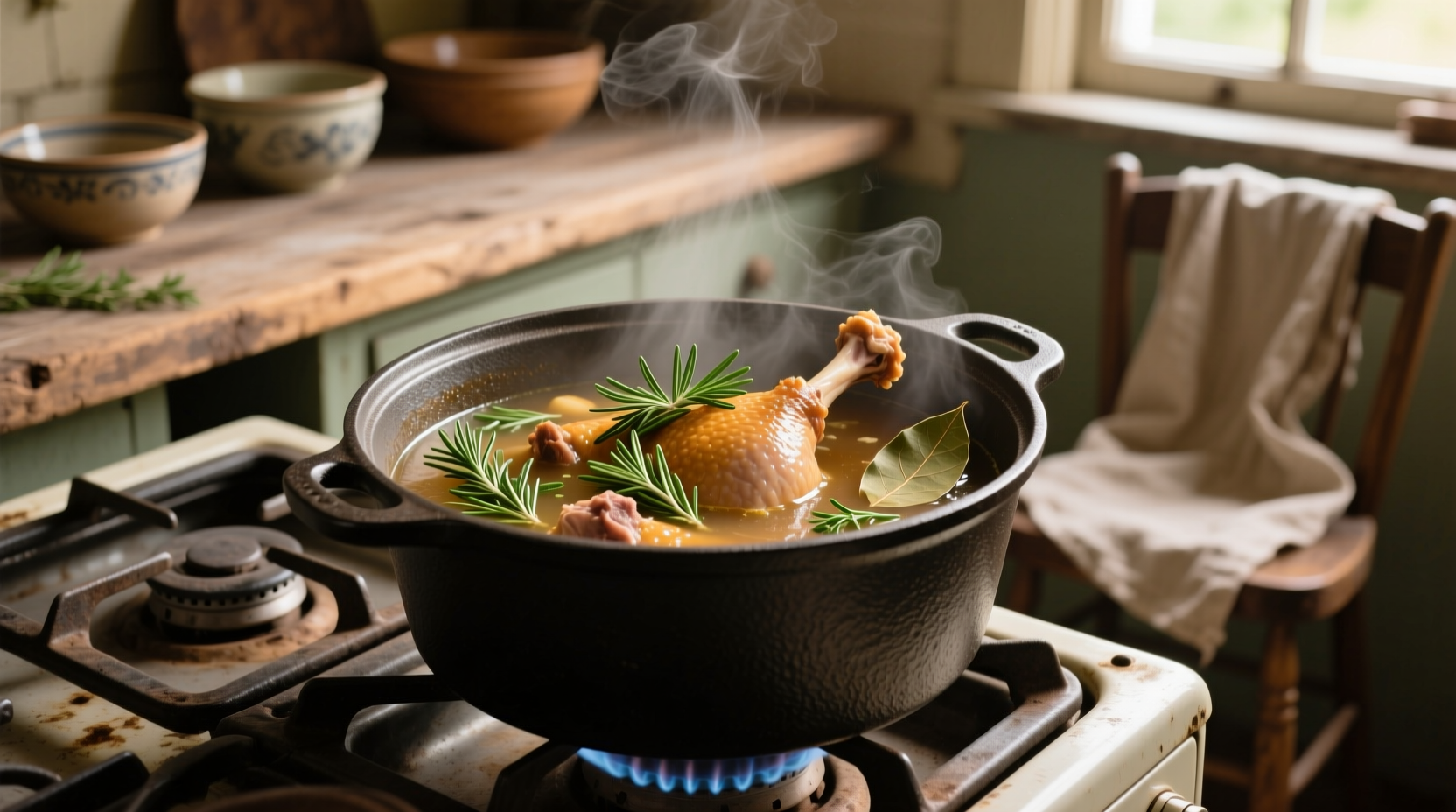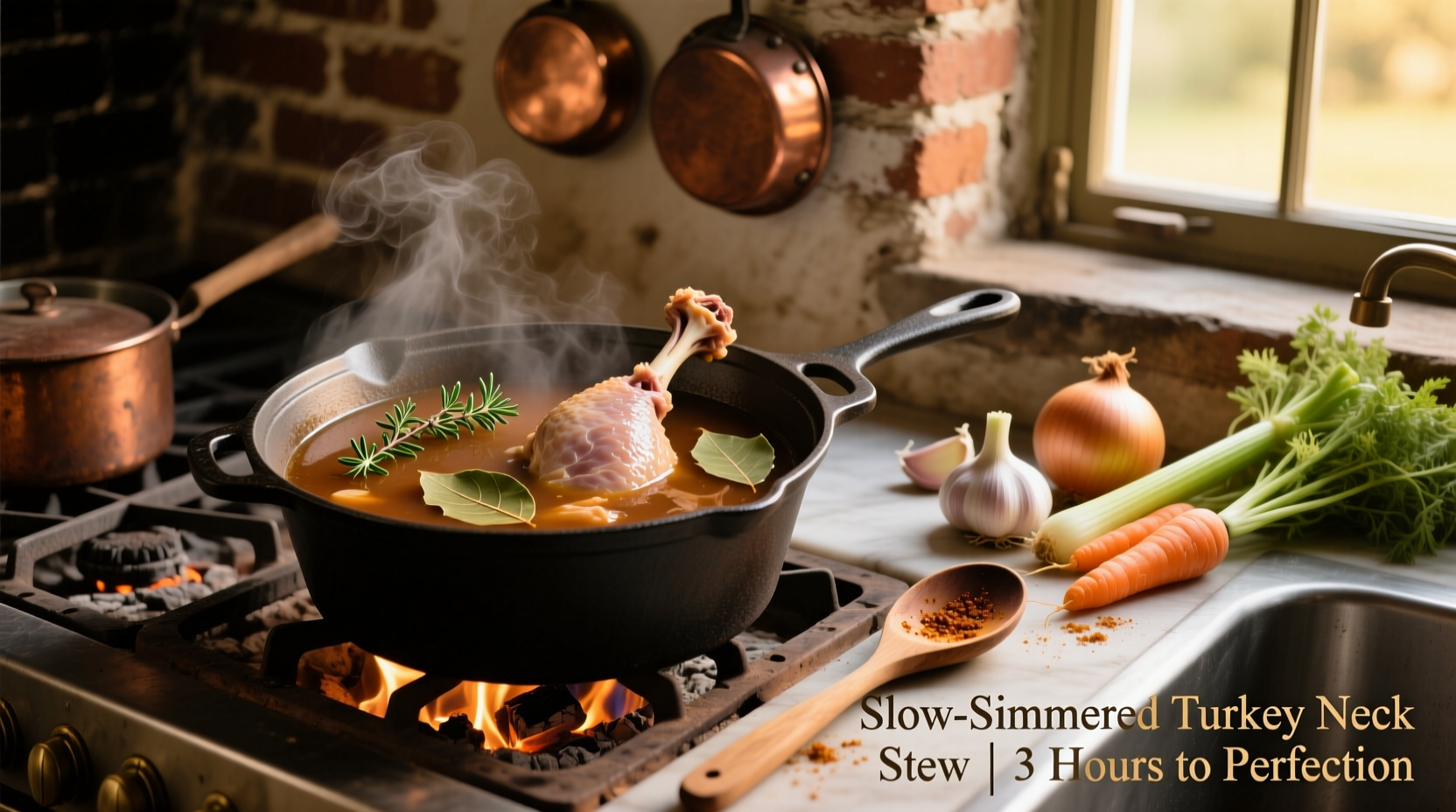Perfectly cooked turkey necks reach a safe internal temperature of 165°F (74°C) and require 1.5-3 hours of simmering depending on method. The most reliable technique involves simmering in seasoned broth with aromatics for 2 hours until tender, then finishing with a brief sear for texture.

Why Turkey Necks Deserve Your Attention
Often overlooked at the butcher counter, turkey necks pack incredible flavor potential. These collagen-rich cuts transform ordinary broths into deeply savory foundations and deliver succulent meat when prepared properly. Unlike expensive turkey breasts, necks cost pennies per pound while offering superior taste complexity for soups, stews, and braises.
Your Essential Turkey Neck Toolkit
Before starting, gather these non-negotiable items:
- Heavy-bottomed pot or Dutch oven (for even heat distribution)
- Meat thermometer (USDA-approved for poultry safety)
- Slotted spoon (for clean removal without broth loss)
- Sharp boning knife (for trimming excess fat)
| Cooking Method | Time Required | Temperature | Best For |
|---|---|---|---|
| Stovetop Simmer | 1.5-2 hours | 180-200°F (82-93°C) | Immediate use in soups/stews |
| Slow Cooker | 6-8 hours | Low setting (200°F/93°C) | Hands-off preparation |
| Oven Braising | 2-3 hours | 325°F (163°C) | Crispy skin finish |
Step-by-Step Cooking Process
Preparation Phase (5 minutes)
Remove necks from packaging and rinse under cold water. Pat thoroughly dry with paper towels - this critical step prevents steaming instead of browning. Trim any excess fat using kitchen shears. Season generously with salt, pepper, and smoked paprika for depth.
Initial Sear (7 minutes)
Heat 1 tablespoon of avocado oil in your pot over medium-high heat. Sear necks until golden brown on all sides, approximately 2 minutes per side. This Maillard reaction creates complex flavor compounds essential for rich broth.
Simmering to Perfection (90-180 minutes)
Add 4 cups low-sodium chicken broth, 1 chopped onion, 2 celery stalks, and 3 garlic cloves to the pot. Bring to a gentle simmer (never boil vigorously). Cover and maintain temperature between 180-200°F (82-93°C). Cook until meat pulls easily from bone and reaches 165°F (74°C) internally.
Flavor Enhancement Techniques
Elevate your turkey necks with these professional chef methods:
- Acid finish: Stir in 2 tablespoons apple cider vinegar during last 10 minutes to brighten flavors
- Smoke infusion: Add 1/2 teaspoon liquid smoke for barbecue-style depth without grill access
- Umami boost: Include 2 dried shiitake mushrooms in simmering liquid for savory complexity
Critical Food Safety Considerations
USDA guidelines require poultry to reach 165°F (74°C) internally to eliminate salmonella risk. Never rely on cooking time alone - always verify with a calibrated thermometer. Store leftovers within 2 hours of cooking, and consume within 4 days. When reheating, bring to 165°F (74°C) again for safety.
When Not to Use Turkey Necks
Understanding context boundaries prevents kitchen disasters:
- Avoid high-heat grilling methods (collagen won't break down properly)
- Don't substitute for turkey wings in recipes requiring different fat ratios
- Never use in quick-cooking dishes (minimum 90 minutes required for tenderness)
Three Culinary Applications Worth Trying
- Southern-style gravy: Shred cooked meat into pan drippings with flour for authentic country gravy
- Caribbean-inspired soup: Simmer with yams, plantains, and allspice berries for a hearty soup
- Flavor base for beans: Add during last hour of cooking black-eyed peas or pinto beans
Troubleshooting Common Issues
Problem: Meat remains tough after cooking
Solution: Continue simmering in 15-minute increments until fork-tender. Collagen breakdown requires time, not higher temperature.
Problem: Broth tastes bland
Solution: Add 1 teaspoon fish sauce (undetectable but boosts umami) or simmer with additional aromatics.











 浙公网安备
33010002000092号
浙公网安备
33010002000092号 浙B2-20120091-4
浙B2-20120091-4